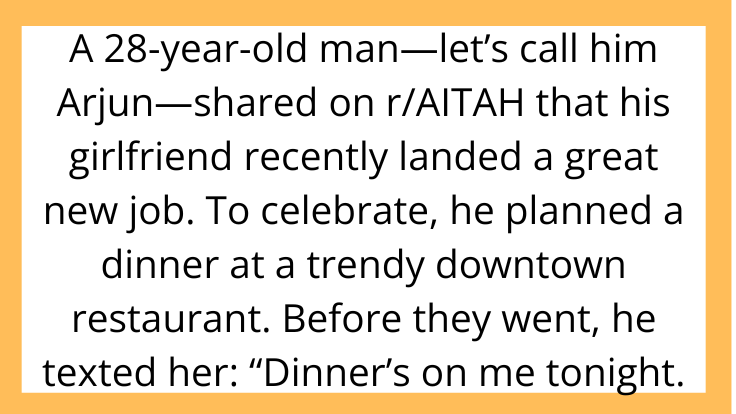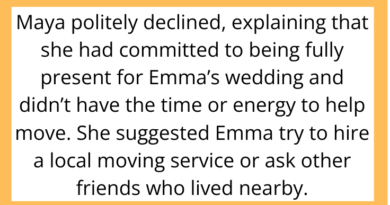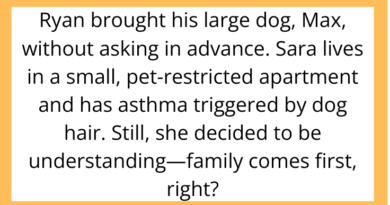AITAH for Refusing to Pay for My Girlfriend’s Friends at Dinner After I Said I’d Cover “Us”?
It started with a dinner invitation. I offered to treat my girlfriend to a nice meal after her big promotion—but things spiraled when her friends showed up, ordered generously, and expected me to pick up the entire tab. When I refused, drama erupted.
Did I break an unspoken rule of generosity, or was I being taken advantage of?
Let’s dig into this popular AITAH story that’s dividing opinions online.
The Invitation: A Celebration Turns Awkward

A 28-year-old man—let’s call him Arjun—shared on r/AITAH that his girlfriend recently landed a great new job. To celebrate, he planned a dinner at a trendy downtown restaurant. Before they went, he texted her: “Dinner’s on me tonight. Let’s celebrate us.”
But when he arrived, he was surprised to find not just his girlfriend—but also four of her friends at the table.
Arjun assumed they’d all just join in for drinks and conversation. But when the night ended, the bill was handed to him—along with a quiet expectation that he’d pay for everyone.
The Refusal: Drawing the Line
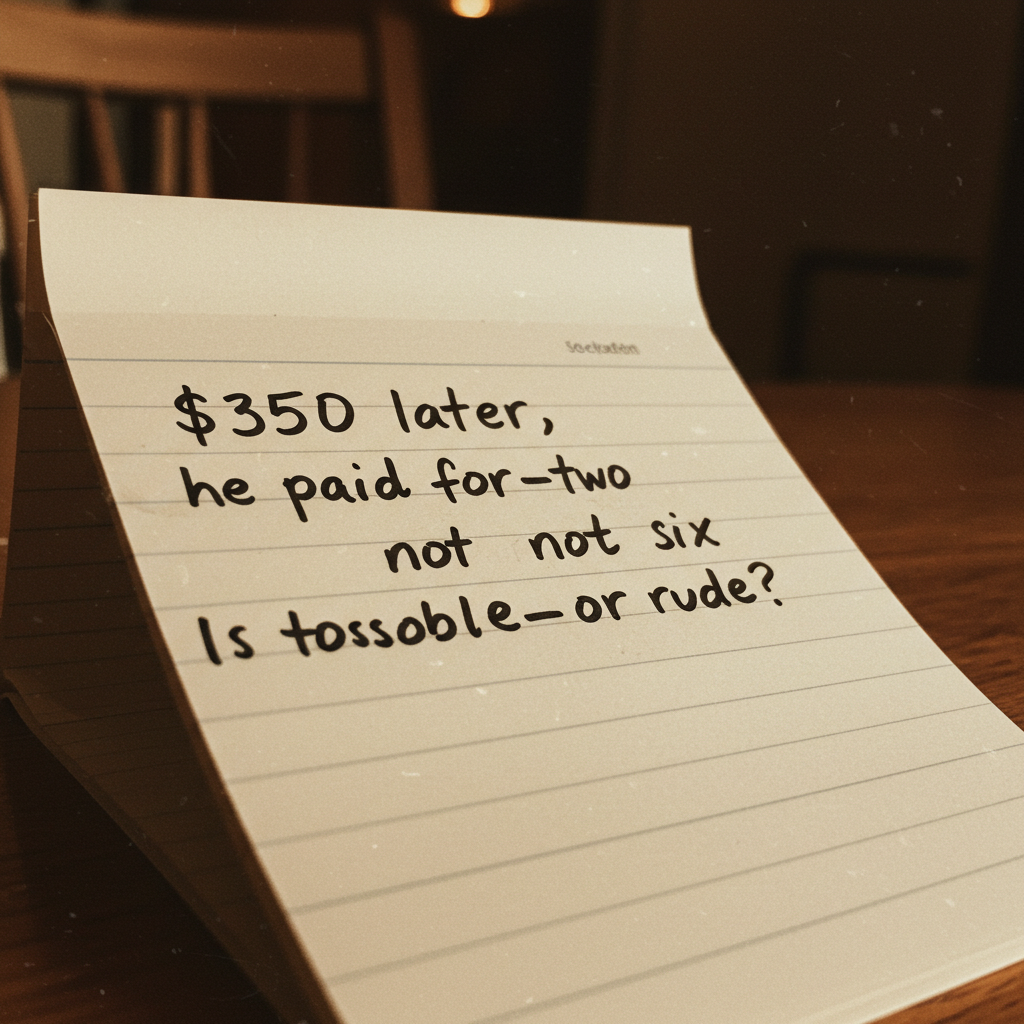
When the check arrived, Arjun glanced at the total: over $350. His jaw dropped. Each of the friends had ordered cocktails, appetizers, entrées, and dessert. Some even took food to go.
He paid for himself and his girlfriend—but left the rest for the others to split. That’s when things got messy.
His girlfriend was clearly upset. One of her friends whispered something snarky, and another made a passive-aggressive comment about “cheap men.”
The next morning, his girlfriend texted him saying she was embarrassed, and that she “thought he had it covered.”
Now Arjun is wondering: AITAH for refusing to pay for her friends after I said I’d cover us?
Reddit’s Take: Is It Generosity or a Setup?

The Case for Arjun: Clear Communication
Many commenters agreed that Arjun was not the villain.
“You said ‘us.’ That doesn’t include her entourage,” one user wrote.
Another chimed in, “Unless you explicitly said you were covering everyone, it’s wildly inappropriate for her to assume.”
They pointed out that this wasn’t a surprise birthday party—this was supposed to be a one-on-one dinner celebration. The friends showing up, ordering without limits, and assuming he’d pay felt presumptuous at best—and manipulative at worst.
The Case for the Girlfriend: Social Expectations
Some, however, offered a counterpoint. In some cultures or friend circles, it’s expected that if you invite others to dinner—especially at a celebration—the inviter foots the bill.
Others argued that Arjun could have at least pulled his girlfriend aside to clarify the situation instead of making her deal with the awkwardness at the table.
Still, the majority leaned in Arjun’s favor.
Key Themes: Miscommunication, Expectations, and Financial Boundaries
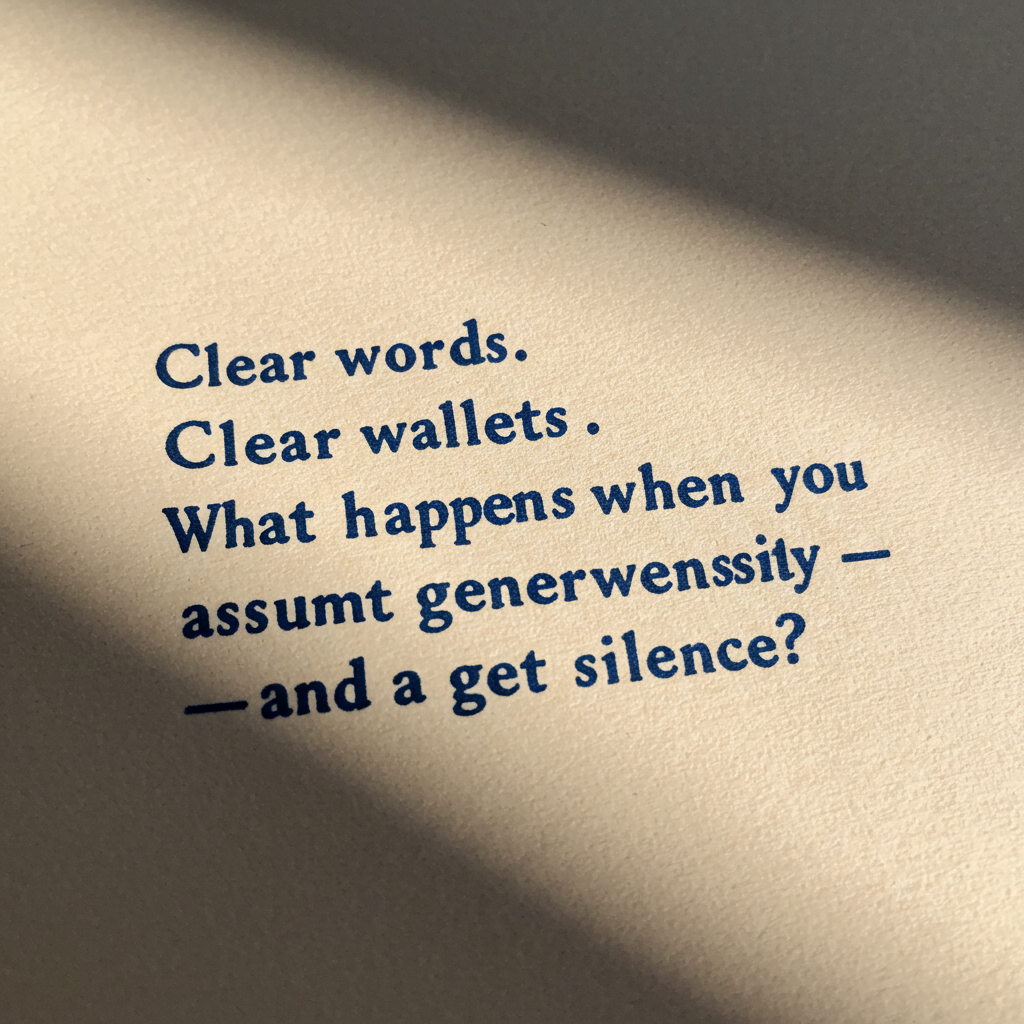
This story touches on a few hot-button topics in modern relationships:
1. Ambiguity in Language
Saying “Dinner’s on me” sounds generous—but it’s vague. While Arjun meant he’d cover the couple, his girlfriend interpreted it as a group gesture. Always clarify.
2. Assumed Generosity
Was this dinner a surprise group event? Or did the girlfriend plan for her friends to show up knowing (or hoping) Arjun would pay? Intentions matter, and so does transparency.
3. Financial Boundaries
Being generous shouldn’t come at the cost of being taken advantage of. Drawing financial boundaries—especially early in a relationship—is not just okay, it’s healthy.
Could This Have Been Handled Better?

What Arjun Could Have Done:
-
Asked about the guest list when he saw more chairs at the table.
-
Politely clarified before ordering if the expectation was for him to pay for everyone.
-
Had a private follow-up with his girlfriend instead of letting the situation escalate.
What His Girlfriend Could Have Done:
-
Communicated clearly about inviting others.
-
Asked if he was okay covering the group—or offered to split costs with him.
-
Acknowledged the miscommunication instead of blaming him.
The Aftermath: What’s Next for the Relationship?

Trust and communication are at the core of any strong relationship. If Arjun’s girlfriend truly misunderstood, this could be a growth opportunity. But if she knowingly invited friends expecting a free meal, that’s a red flag.
A healthy relationship doesn’t rely on unspoken expectations or social pressure.
The Verdict: Not the Villain
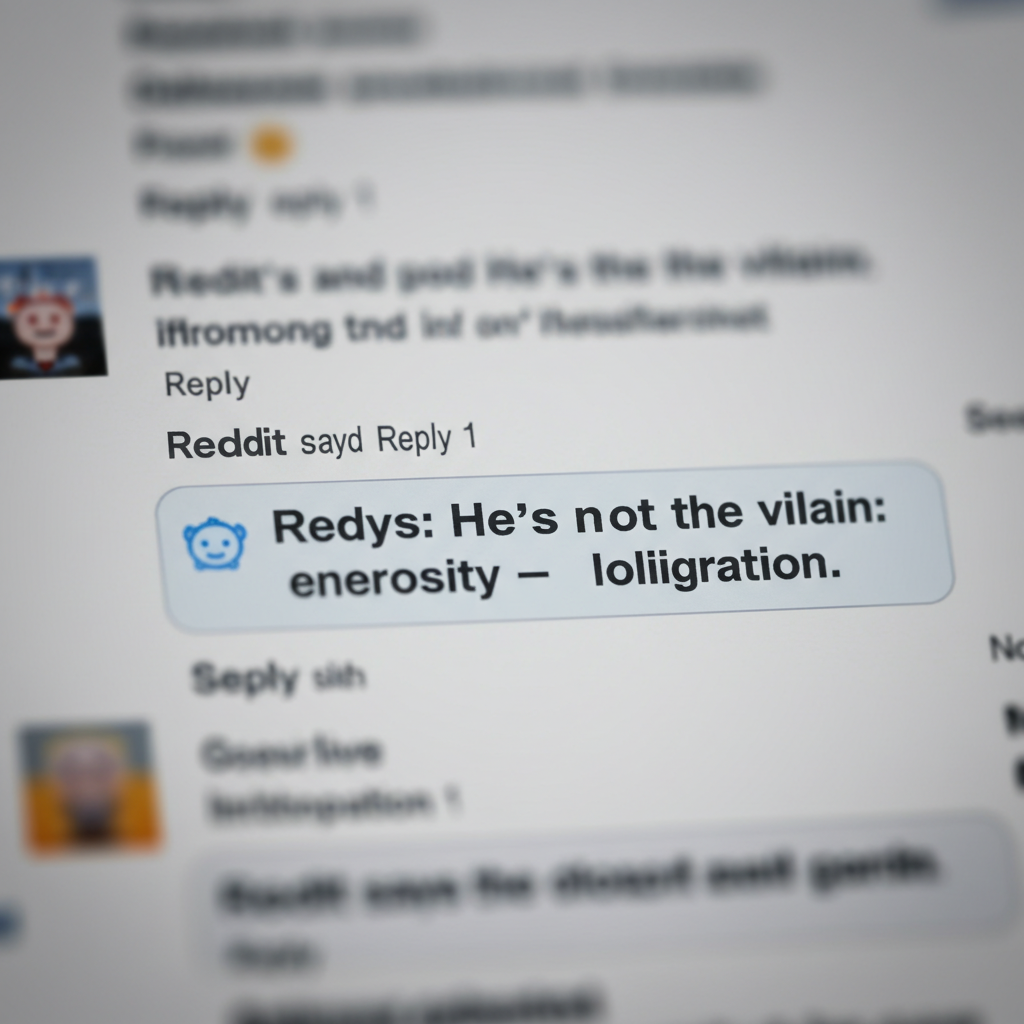
Reddit’s consensus is clear: Arjun is not the villain here. Being generous doesn’t mean being taken for granted.
There’s a difference between treating someone you love and being cornered into a group bill you didn’t sign up for. This isn’t about being cheap—it’s about respect and honesty.
